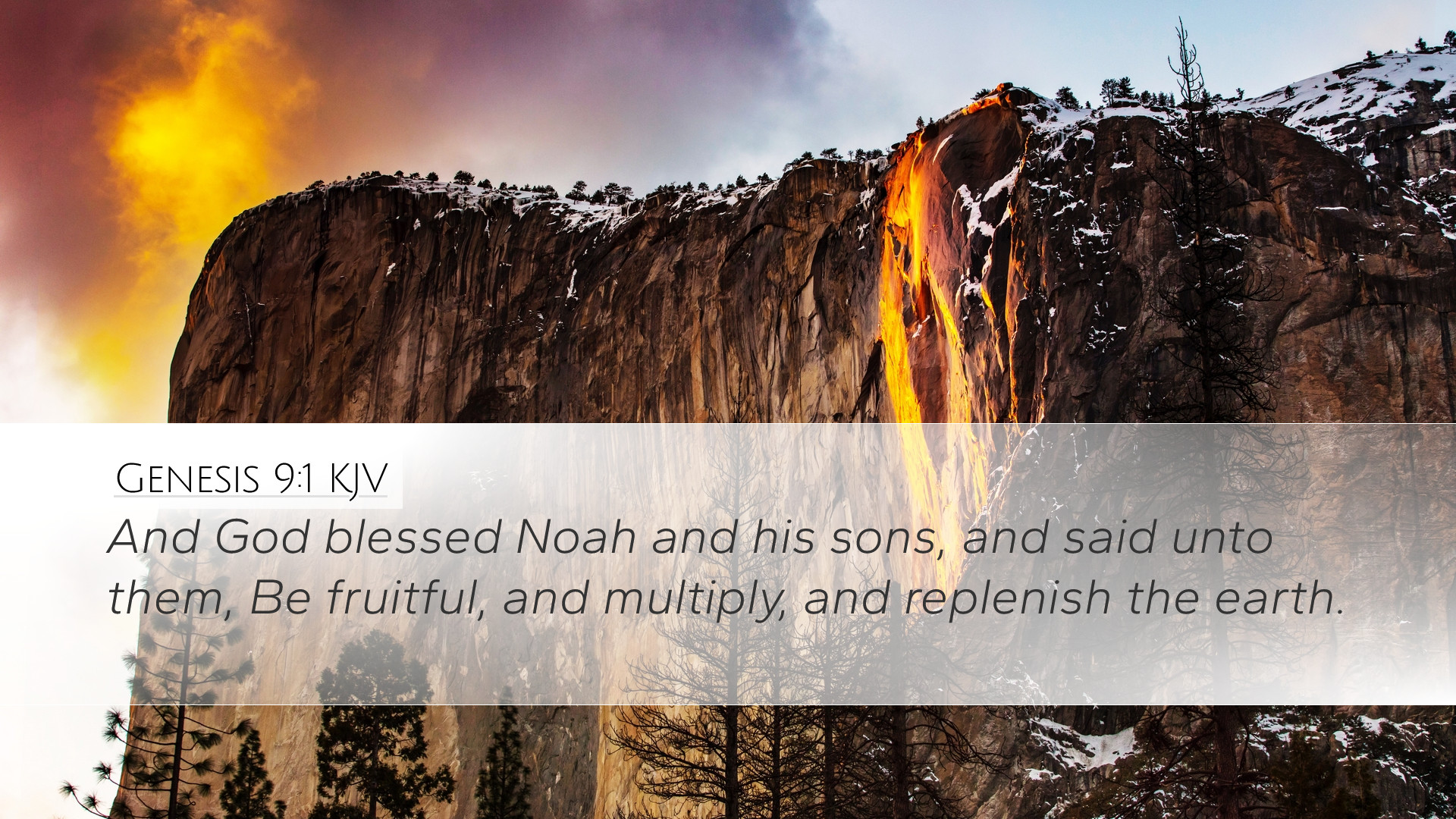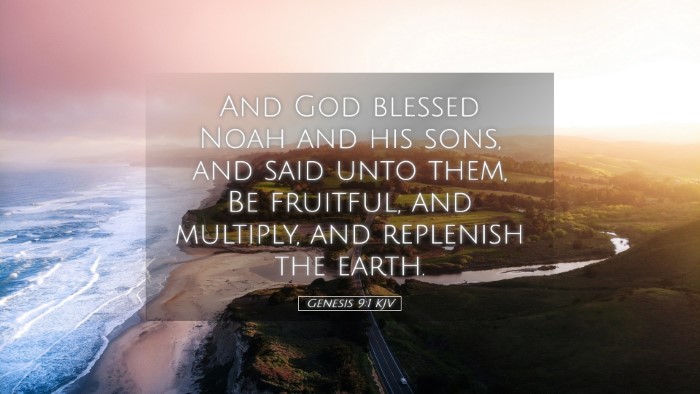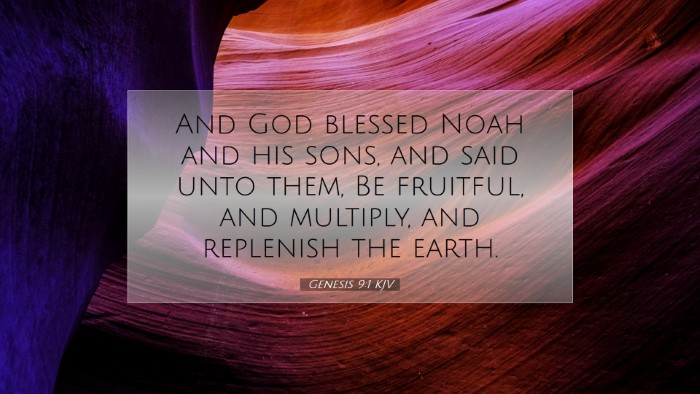Commentary on Genesis 9:1
Genesis 9:1 states, "And God blessed Noah and his sons, and said unto them, Be fruitful, and multiply, and replenish the earth." This verse marks a pivotal moment in the biblical narrative following the flood, encapsulating God's reaffirmation of His covenant with Noah and his descendants. The commentary on this verse delves into various theological, historical, and practical insights that are significant for pastors, scholars, and students of Scripture.
1. Contextual Background
The context of Genesis 9 arises after the deluge, a catastrophic event that significantly altered the state of creation. In this chapter, God establishes a new beginning for humanity through Noah. The significance of God's blessing is profound as it not only restores humanity's mandate but also redefines its purpose post-flood.
2. The Nature of God’s Blessing
Matthew Henry comments on the nature of the blessing that God bestowed upon Noah and his sons, indicating that this blessing is integral to understanding humanity's role in the created order. God’s blessing implies His divine approval and empowerment for fulfilling the command He issues next.
Albert Barnes highlights that blessings in the biblical context are not merely verbal affirmations but carries with them the weight of divine intention and action. This blessing reflects God's desire for humanity to thrive and to fill the earth with life.
3. Command to Be Fruitful and Multiply
The command to be fruitful and multiply is a restoration of the directive given to Adam and Eve in the creation account (Genesis 1:28). Adam Clarke notes that this is a significant reiteration of God's original design for humanity, emphasizing the continuity of God's plan despite the destructiveness of sin evidenced through the flood.
3.1. Theological Significance
Theological implications of this command extend to God's intentions for human procreation and stewardship of creation. Henry points out that this command reflects God’s desire for human beings to reflect His image and to cultivate the earth beautifully and responsibly.
3.2. Implications for Modern Society
This command bears a vital significance for contemporary culture, especially regarding the sanctity of life and the family unit. Barnes asserts that the encouragement to multiply includes a responsibility to nurture and guide new generations under the guidance of God's laws.
4. The Universality of the Mandate
Unlike previous commands that were addressed specifically, this directive extends not only to Noah's immediate family but universally to all humanity. Clarke notes that the universality of this command indicates a new covenantal relationship between God and all humanity, envisioning a world populated by God-fearing individuals who adhere to His laws.
5. Replenishing the Earth
The phrase "replenish the earth" warrants attention as it represents the idea of fullness and flourishing of creation. Matthew Henry emphasizes that 'replenishing' suggests a duty to harness the earth's resources responsibly and sustainably, ensuring that the earth abounds in life rather than depleting it.
Furthermore, Barnes provides an important note on stewardship, underscoring that the command includes the responsibility to protect and cultivate the creation rather than allowing it to fall into ruin through neglect or abuse.
6. Theological Reflections
The verse serves as a foundational theological statement concerning humanity’s relationship with God as a restorer and creator. The blessings bestowed upon Noah signify God’s grace and mercy, even in judgment. Henry contends that this is reflective of God’s ongoing plan for reconciliation and restoration for all of creation.
7. Conclusion
In conclusion, Genesis 9:1 is much more than a mere historical statement; it is a significant theological cornerstone for understanding God's intention for humanity post-flood. The blessings, the command to be fruitful and multiply, and the call to replenish the earth provide rich material for theological reflection and practical application.
Pastors and theologians can derive meaningful principles for guidance in pastoral care, family ministry, and ecological responsibility from this passage. It reminds believers of their collective duty to fulfill God's command, fostering life, and participating actively in His creative work.


